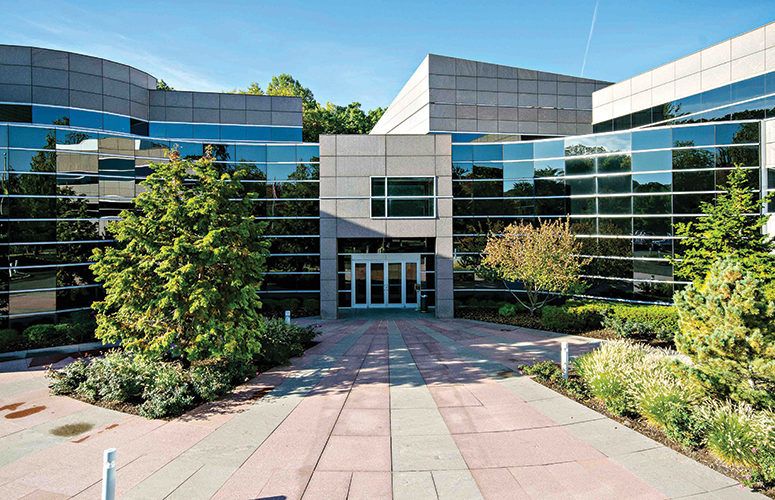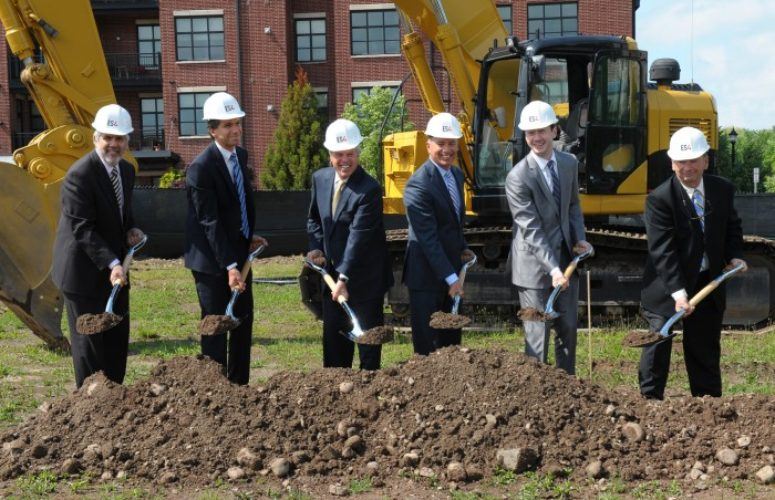
Bergen County’s ‘Dreams’ Come True
Residents and businesses in the state’s most populous county stand on the potential threshold of a new economic development bonanza with the American Dream and other developments.
By Ron Marsico, Contributing Writer On Apr 20, 2020Entertainment, sporting events, retail shopping, e-commerce, warehousing, along with some manufacturing and even eco-tourism, are key underpinnings for continued future economic growth in Bergen County, the state’s most populous county just across the Hudson River from Manhattan.
“We have a lot to be proud of in Bergen County,’’ County Executive James Tedesco III proclaimed in his late February State-of-the-County speech. “I am happy to report that the state of the county is strong and only growing stronger.’’
Much of Bergen County’s economic hopes are riding on the long-awaited materialization of the American Dream.
After decades as a failed concept and empty eyesore along Route 3, the American Dream entertainment, dining and mall complex (nee Xanadu) turned its previously garish color scheme into a gleaming, pristine white – symbolizing a clean slate.
Late last year, the project’s first elements – Nickelodeon Universe, Big Snow indoor ski area and an ice rink – opened near MetLife Stadium. By the end of 2020, the rest of the complex – including hundreds of stores, and restaurants – are set to open. The DreamWorks Water Park was scheduled to open on March 19. Proponents predict an eye-popping 40 million people will be drawn to the complex annually once all is in place.
(On March 13, American Dream issued a statement saying it would close on March 16 and remain closed until the end of the month as a safeguard against the spread of COVID-19. The company will monitor the situation and follow the guidance of federal and state officials and public health agencies.)
“It means a lot for the region,’’ says Jim Kirkos, president and CEO of the Meadowlands Regional Chamber. “We’ve been a big supporter of the project over the years, from when it was originally Xanadu to now American Dream, because we understand the economic impact to the region in terms of jobs and even the ancillary support, which impacts the local communities.”
Kirkos hopes the American Dream and nearby MetLife Stadium/Meadowlands Sports Complex, with its bedrock football Giants and Jets’ fan base, pack a joint economic wallop – eventually combining with one of his pet initiatives: a future multi-purpose convention center whose users also will flock to the mall offerings, stadium concerts and Meadowlands Racetrack.
But Bergen County’s economic future includes other major initiatives that utilize the county’s geographic proximity to New York City and major highways, environmentally vital wetlands, as well as its highly trained and educated workforce.
“We’re right in the heart of everything in Bergen County,’’ boasts Kirkos.
High on the list is leveraging the massive e-commerce boom, via the county’s long-standing manufacturing, industrial and warehouse operations. With vacancy rates near capacity and square-foot costs rising rapidly, the challenge is finding places to meet this growth.
“The demand is huge,’’ says Joanne Cimiluca, Bergen County’s director of economic development. “So for warehouse and industrial and manufacturing, we are in such good shape here in Bergen. The downside to that is, for the ones that are here that want to expand, it’s a little bit tricky. That’s when it comes [down] to working with the individual cities and boroughs to help these businesses expand.”
One major project is the Russo Development and Forsgate Industrial Partners’ plans for reimagining the former EnCap site – a series of capped landfills in southern Bergen County that were to be topped with luxury housing, golf courses and hotels – a hugely costly venture that failed spectacularly as the Great Recession began.
Russo and Forsgate seek to build a roughly 3-million-square-foot warehouse and distribution center on the 700-acre plus site – rechristened Kings-land Meadowlands – with world-class facilities catering to the e-commerce and logistics industry.
“That is going to be a huge commodity in the future,” predicts Cimiluca, pointing to Forsgate’s recent success in attracting Amazon and Goodwill Industries to new industrial space in Teterboro.
Manufacturing – especially in the food industry – is surprisingly strong in Bergen, Cimiluca says. She explains it runs the gamut from old school Sabrett hot dogs with offices in Englewood to a Moonachie company that makes 60 tons of coffee annually to a firm that produces vegan seaweed in Hackensack for high-end sushi restaurants.
As always in Bergen County, as throughout much of northern New Jersey, it comes down to a tenuous balance between open space, quality of life and development pressures.
Cimiluca is grateful some 1980s-era office space has been revamped to meet 21st century styles and needs, citing for example the overhaul of buildings in Paramus to reconfigure work spaces with the inclusion of gyms, daycare and eating establishments. Adding Wegman’s at the upgraded Paramus Park Mall, taking over an area that included Sears, is proving particularly appealing, she says.
Adaptive re-use of so-called “stranded assets’’ continues outside of Paramus as well, Cimiluca notes.
Promotion in Motion – a manufacturer of snacks and confections – took over a vacant Hertz complex in Allendale. High-end residential units are transforming a former A&P site in Montvale. Additionally, Memorial Sloan Kettering established a satellite outpatient medical facility in the old Toys “R” Us corporate office, also in Montvale.
Overall, mixed-use developments – those that blend residential, retail, commercial, cultural and at times transit components – like the S. Hekemain Group’s redevelopment of the former Mercedes Benz USA headquarters site in Montvale – are key to sustainable growth in northern Bergen County, Cimiluca says.
Not that projects advance easily, of course.
“Sometimes people come out with pitchforks,’’ says Cimiluca of opposition to some plans. “People love the idea of having a bedroom community. They don’t want New York City because they work there. They want to come home. They want it to be quiet.
“But at the end of the day, these big businesses bring ratables, they help keep taxes lower, so there’s got to be a compromise,” she adds.
Upgrading and expanding transportation infrastructure in densely populated Bergen also is essential. Along with road improvement projects, there is a desire for the Hudson-Bergen Light Rail line to finally be extended north into eastern Bergen County.
“The whole corridor would explode,’’ Cimiluca says. “We want it badly.”
With memories of the ravages wrought by Superstorm Sandy in 2012 still strong, Bergen County also embraces protection of open space and wetlands, while marketing such areas for passive recreation.
“We’re using eco-tourism as a means of attracting visitors to this pristine Meadowlands,’’ explains Kirkos, referring to expanding kayaking along with bike and walking paths. “It’s part of what we call destination development, bringing people into the region. They come for meetings, they come for big events and they come for eco-tourism. And we like that.”
To access more business news, visit NJB News Now.
Related Articles:





